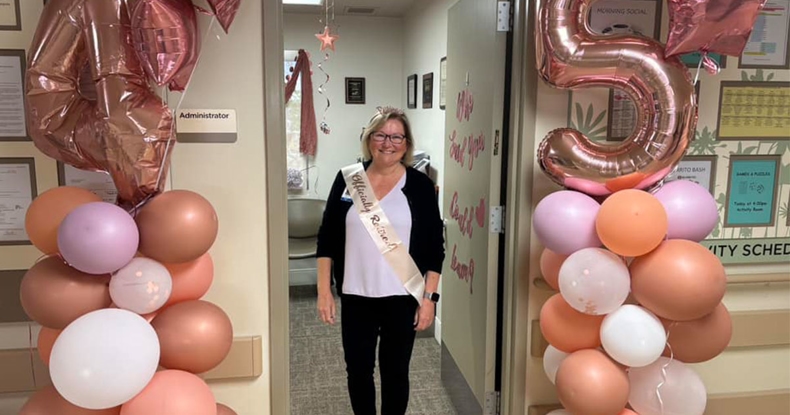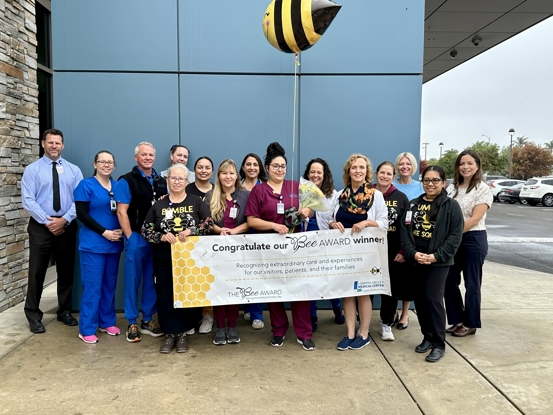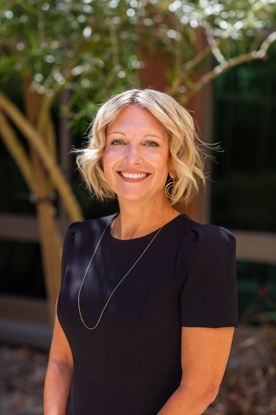Recognizing the Impact of Physician Assistants
- Category: LVMC Updates
- Posted On:
- Written By: Paul Fry

I had the opportunity to eat lunch with a Physician Assistant who graduated from the second graduating class at the University of Washington MEDEX Northwest Physician Assistant program in 1971. I was fascinated with the conversation thinking of the value this individual has to the P.A. profession.
He shared with me how he was training for the profession even before the state of Washington had amended its laws to allow Physician Assistants to practice medicine. The next thing he told me gave me a deeper understanding of my profession, and insight into why PAs are who they are. He told me that as the first class of the MEDEX program was getting ready to graduate, they made bets with one another predicting which PA from their graduating class would be arrested first for practicing medicine without a license.
The initial surprise of that recollection caused me to laugh. But then I immediately realized that I could relate to that story in a small way. My feelings as I neared my own graduation and began working as a new PA were similar, and I suspected that most, if not all, PAs (and I have since learned Nurse Practitioners also) felt the same way.
The ability to practice medicine has been extended to Physician Assistants and Nurse Practitioners legally. But deep inside, subtly and unspoken, was the belief that I was getting ready to tread on sacred ground – that it was the medical school degreed Physician who owned the field of clinical medicine.
As Physician Assistants, we were invited in. We were meticulously screened and given excellent training and preparation. My own conscience, however, reminded me that as a PA I am a guest, practicing medicine by the good grace of the physician community. At worst, some would consider me a usurper taking advantage of an organization trying to profit by driving down cost.
As the laughter died down after the story from the fellow PA, my mind continued to ponder how that story changed the way I thought about our profession. Even today, I think about the subtle insecurity that comes with being a Physician Assistant. I wonder, even 50 years after being invited in to “multiply the hands of the physician community,” as Dr. Richard Smith put it, has that insecurity remained? And if so, how has it affected the PA profession?
While I can only speak based on my own experience, I have long believed that the manner in which PAs are welcomed into legitimate clinical practice leads to a type of protective insecurity. I believe that insecurity is a benefit to our profession because it opposes a tendency to become arrogant or overconfident.
I remember when I started my PA career I had to explain to most patients what a Physician Assistant was. Now my patients have no difficulty explaining to me what a PA means to them. A common description is, “They listen longer and take more time.” Could it be that our insecurity causes us to slow down, be more careful and take a little more time with patients?
Another powerful benefit of functional insecurity is collaboration with our supervising physician. We rely on them not only to legitimize our practice, but also to mentor us and reinforce the standard of care. It is the close interdependence between a Physician and Physician Assistant that enhances care and strengthens both professions.
During this National Physician Assistants (PA) Week, I must give a lot of credit to Physicians like Dr. Richard Smith and D. Eugene Stead, who recognized the physician shortage and invited the Physician Assistant profession into existence. I also recognize and appreciate the hundreds of thousands of Physicians who have welcomed PAs into their professional and clinical lives. After 50 years, the PA profession is very strong. My hope is that we remain confident, but not overconfident, humble, and hold onto maybe just enough insecurity to remain appreciative of the trust we have been given.






.jpg)